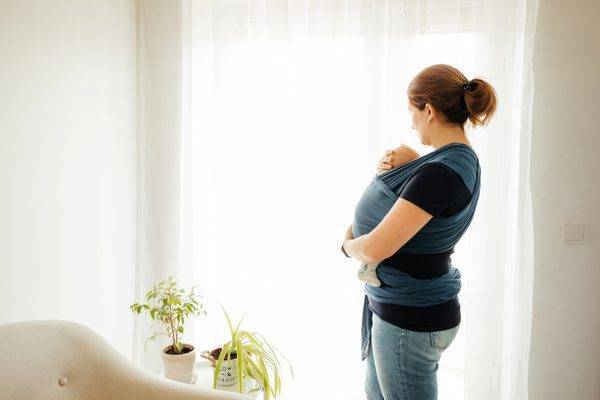An estimated 1 in 7 women suffer from a perinatal mood disorder, but only around 15 percent receive professional help. These women are of every color, socioeconomic background, religion, and continent. This statistic shocks and surprises most people who see it. But not me. I’m 1 of the 7. I’m the face of a perinatal mood disorder. I know all too well the fear and shame that postpartum anxiety and depression bring upon a mother.
No one talks about it—and worse, many don’t seek help because they are ashamed. Sadly, media reports sensationalized stories on mothers who take their own lives and/or the lives of their children. They slap one-size-fits-all label of “postpartum depression” on these women. The truth is there are different disorders under the umbrella of perinatal mood disorders. They all manifest themselves in different ways. The symptoms can be different, and the treatments are often different as well.
Postpartum Depression
The best-known of these is postpartum depression (PPD). Symptoms of PPD can show up during pregnancy and up to a year afterward. Some of the warning signs doctors tell patients to look for include trouble sleeping, loss of appetite, and feelings of fatigue. The problem is that these are things that parents of most newborns are normally experiencing. This is one reason that PPD goes unreported and untreated. Moms just don’t realize that what they are feeling isn’t just normal new parent adjustment. They brush off that nagging feeling that something is just not right because they think it’s just part of their new normal.
Postpartum Anxiety
Postpartum anxiety (PPA) is becoming more recognized than in the past. It is estimated that 1 out 10 mothers will experience PPA. Symptoms of PPA can include constant worry, racing thoughts, loss of appetite, and trouble sleeping. Again, these warning signs can be easily misconstrued as what is normal for a new mother. “Of course I’m worried how much they are eating! I have a million things running through my head—tracking diapers and feeds!” It is important to note that you can experience PPA without experiencing depression. But anxiety left untreated often turns into depression.
Postpartum Obsessive-Compulsive Disorder
A lesser-known perinatal mood disorder, Postpartum obsessive-compulsive disorder (POCD) is often misunderstood. It is a type of anxiety that includes intrusive thoughts. Mothers dealing with POCD usually recognize that their thoughts are out of the ordinary and rarely act on them. They tend to perform activities compulsively, such as cleaning or checking on things over and over. Mothers with OCD tend to be obsessed with their newborn’s safety and wellbeing.
Postpartum Psychosis
Postpartum psychosis (PP) is the rarest of these disorders. It occurs in an estimated 0.1 to 0.2 percent of women—much less frequent compared with PPD or PPA. Some of the signs of postpartum psychosis are delusional thoughts and hallucinations that seem very real to the mother. They are sometimes religious in nature. These are the cases that get reported in the news, with the mothers mislabeled as suffering from PPD.
An estimated 5 percent of women who suffer from postpartum psychosis take their own lives, and 4 percent commit infanticide. The majority of women suffering from psychosis do not harm themselves or anyone else. But immediate treatment is imperative, as their delusional thoughts are real to them.
Post Traumatic Stress Disorder
Mothers can also suffer from PTSD from traumatic birth experience. Post-traumatic stress disorder can result in flashbacks, difficulty sleeping, anxiousness, and panic attacks.
Fear and Stigma
All of these mental health disorders are treatable. So why do so many parents not seek help? There are a few reasons I think parents (yes, dads can also suffer from perinatal mood disorders) do not get treatment. A lot of social stigma and false information surround mental health disorders. Mothers worry that if they admit they have a perinatal mood disorder people will automatically think they want to harm their baby. Often mothers are scared that their children will be taken away from them if they need to be hospitalized for treatment.
Motherhood is romanticized in our culture. A lot is expected of mothers without consideration of how much work mothering can be. We no longer live in villages with extended family nearby to help with the care and rearing of children. We socialize via social media, where we only see a perfect, well-
edited picture of someone’s life.
How can we as a community help new mothers?
Reach out to other moms, especially new moms and first-time mothers. Ask them how they are really doing. Take time to listen to them and build a relationship. If you sense something is off, encourage them to talk to their health care provider. And check in with them a couple days later to follow up.
How can we encourage more parents to seek treatment for perinatal mood disorders?
One way is to remove the stigma. If you suffered from one of these disorders, talk about it. Share your story with new parents. Not to instill fear but to let them know that one, this happens; and two, it is treatable!
The first step in healing is telling someone that you are struggling with these feelings. Be that someone for a new mom. If you or someone you love is expecting, go ahead and familiarize yourself with some of the warning signs for perinatal mood disorders.
You can find wonderful resources on the internet for maternal mental health information. Postpartum Support International is an invaluable resource. You can find a wealth of information and get help at www.postpartum.net.
If you are reading this and you feel that you may be suffering from a perinatal mood disorder, please seek help from your healthcare provider immediately.




